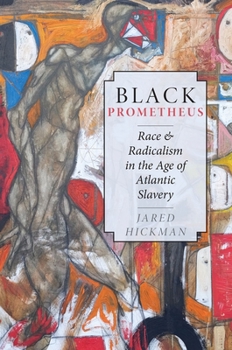Black Prometheus: Race and Radicalism in the Age of Atlantic Slavery
Select Format
Select Condition 
Book Overview
How did an ancient mythological figure who stole fire from the gods become a face of the modern, lending his name to trailblazing spaceships and radical publishing outfits alike? How did Prometheus come to represent a notion of civilizational progress through revolution--scientific, political, and spiritual--and thereby to center nothing less than a myth of modernity itself ? The answer Black Prometheus gives is that certain features of the myth--its geographical associations, iconography of bodily suffering, and function as a limit case in a long tradition of absolutist political theology--made it ripe for revival and reinvention in a historical moment in which freedom itself was racialized, in what was the Age both of Atlantic revolution and Atlantic slavery. Contained in the various incarnations of the modern Prometheus--whether in Mary Shelley's esoteric novel, Frankenstein, Denmark Vesey's real-world recruitment of slave rebels, or popular travelogues representing Muslim jihadists against the Russian empire in the Caucasus-- is
a profound debate about the means and ends of liberation in our globalized world. Tracing the titan's rehabilitation and unprecedented exaltation in the eighteenth and nineteenth centuries across a range of genres and geographies turns out to provide a way to rethink the relationship between race, religion, and modernity and to interrogate the Eurocentric and secularist assumptions of our deepest intellectual traditions of critique.
a profound debate about the means and ends of liberation in our globalized world. Tracing the titan's rehabilitation and unprecedented exaltation in the eighteenth and nineteenth centuries across a range of genres and geographies turns out to provide a way to rethink the relationship between race, religion, and modernity and to interrogate the Eurocentric and secularist assumptions of our deepest intellectual traditions of critique.
Format:Paperback
Language:English
ISBN:0190077794
ISBN13:9780190077792
Release Date:May 2020
Publisher:Oxford University Press
Length:544 Pages
Weight:1.75 lbs.
Dimensions:1.3" x 6.1" x 9.1"
Customer Reviews
0 rating





